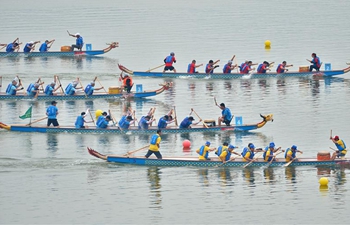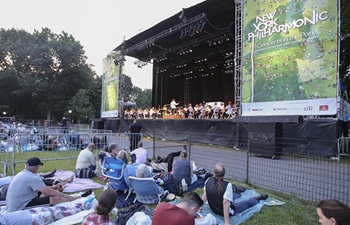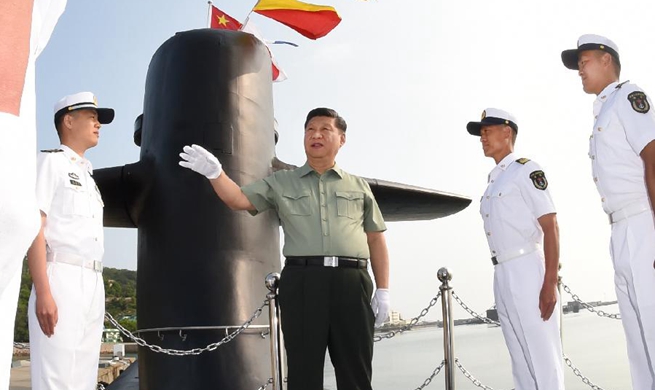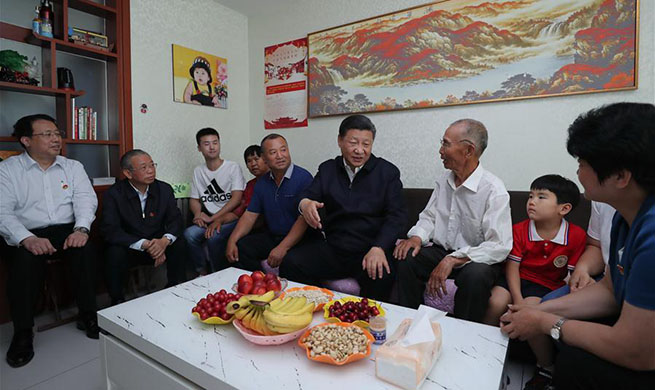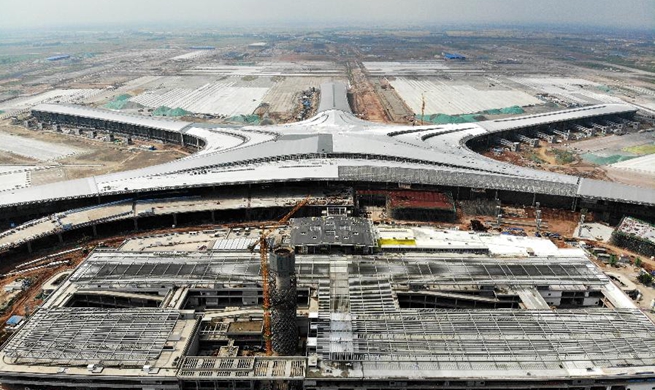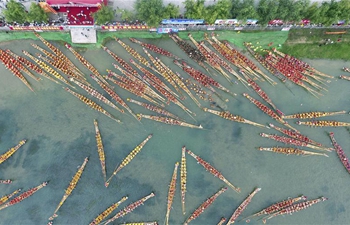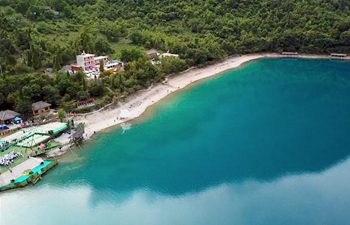ISTANBUL, June 15 (Xinhua) -- As the Syrian government and Kurdish militia agreed to talk over a political settlement, Turkey has no chance of blocking the militia's participation in international peace efforts seeking an end to the Syrian conflict, analysts told Xinhua.
Turkey will not be able to stop the presence of the Kurdish People's Protection Units (YPG) at the negotiating tables since it would be disguised as a political actor under a different name, said Cahit Armagan Dilek, head of the Ankara-based 21st Century Turkey Institute.
Ankara strongly opposes any effort to include the YPG and its political wing, the Democratic Union Party (PYD), which it sees as terror groups, in peace efforts as legitimate parties.
The Syrian Democratic Council (SDC), the political wing of the YPG-dominated Syrian Democratic Forces (SDF), announced last Sunday that it accepted Damascus' proposal to negotiate for a political settlement of the long-running war.
The trick is that the negotiations will not be held with the YPG's political wing PYD, but rather with the SDC, said Dilek.
It is probable that the SDC will also appear as a legitimate party in UN-and-Russia-led talks following negotiations with Damascus, Dilek pointed out.
"In this way, Turkey's opposition to the PYD will be eliminated," Dilek said, noting that the Kurdish militia, having served its purposes during the war, is now emerging as a political entity.
The U.S.-backed SDF, an alliance of Kurdish and Arab militias, has captured around 25 percent of the Syrian territory.
The YPG has two self-declared autonomous cantons along the Turkish border, while the one in Afrin in the northwest was seized by Turkey in March following a two-month military campaign. The Kurds are not expected to settle for less than autonomy in negotiations.
"The U.S., Russia and the international community will support the participation of the PYD in the political process," said Yasar Yakis, former Turkish foreign minister.
"Turkey may find itself isolated if it opposes a process that will be supported by the two super powers and the international community," he added.
Ankara regards the YPG as the Syrian offshoot of the outlawed Kurdistan Workers' Party which has been fighting for an autonomous if not an independent Kurdistan region in Turkey's southeast.
Damascus would reject Ankara's objection to PYD-affiliated Kurdish groups' participation in peace talks, as it would see that as an intervention in its domestic affairs, said Yakis.
Turkey sees the emergence of a YPG-dominated Kurdish entity along its border as an existing threat. It is concerned that an autonomous Kurdish region in Syria would set a precedent for its own Kurkish population of nearly 20 million people.
"Even if al-Assad may not agree to an outright autonomy for the Kurds, he may acquiesce to a certain degree of devolution of administrative competences," said Yakis, referring to Syrian President Bashar al-Assad.
A draft constitution Moscow submitted to the opposition at the beginning of last year refers to cultural autonomy for Kurds, underlining the need for ensuring "the cultural diversity of the Syrian society."
There are two ongoing international initiatives seeking a political solution between Damascus and opposition groups recognized as legitimate. One is the U.N.-led Geneva talks, while the other is the Russia-led Astana process which supported the U.N.-backed effort.
Turkey, a partner in the Astana process, has so far succeeded in excluding the Kurdish militia from peace talks by putting pressure on Russia and the United States.
In his call for dialogue with the Kurdish militia, al-Assad also warned that the military option against the YPG was on the table as well.
Many feel, however, the Syrian army, already weakened by years of fighting, could hardly afford to launch a new offensive against the YPG, which was supplied with a large number of weapons by Washington over the years.
The United States, for its part, stated recently that it would not allow the Syrian forces to seize YPG-held areas.
Up to 300 Syrian fighters, most of whom were alleged Russian mercenaries, were reportedly killed in a U.S. airstrike in February following an attack by the Syrian army-affiliated militias against a U.S. base in YPG-held eastern Syria.
Moscow would not be eager to get involved in fresh fights in Syria, said Dilek, a former staff officer in the Turkish military.
He feels that it is highly probable that Russia and the United States are behind Assad's move to have talks with the Kurds, as Russian and U.S. military chiefs met in Finland on June 8 and discussed, among others, the situation in Syria.
Should Damascus and the Kurds fail to reach a deal on how far the Kurdish autonomy may go, Russia and the United States would intervene to find a middle ground, Yakis said.
The United States seeks administrative and cultural autonomy for Syrian Kurds, Serdar Turgut, the Washington correspondent for the Haberturk daily, wrote on Tuesday.
"Turkey has to cooperate with Damascus, the PYD and the main actors in order to salvage whatever is salvageable in this process in order to make its legitimate security concerns prevail," said Yakis.






